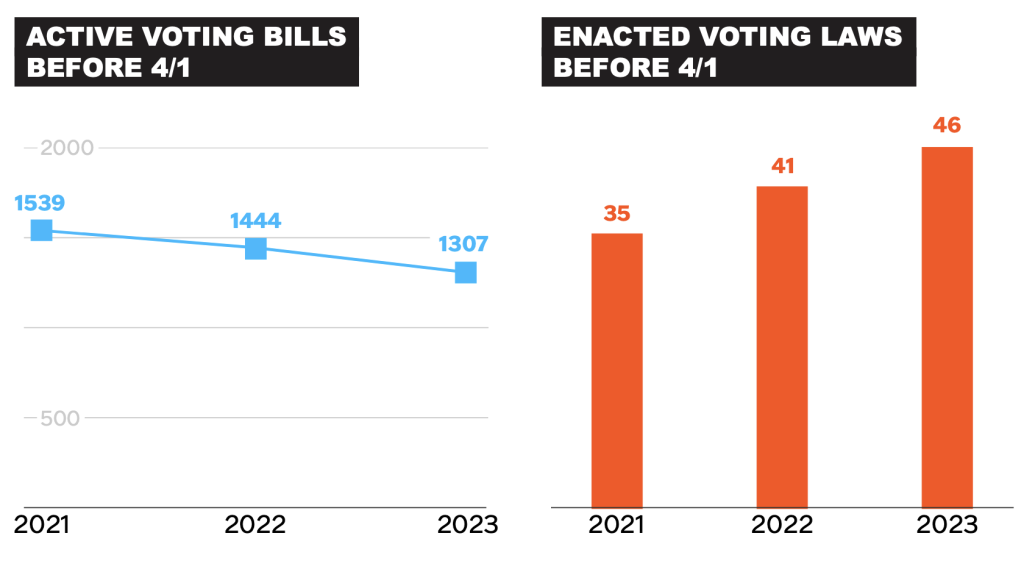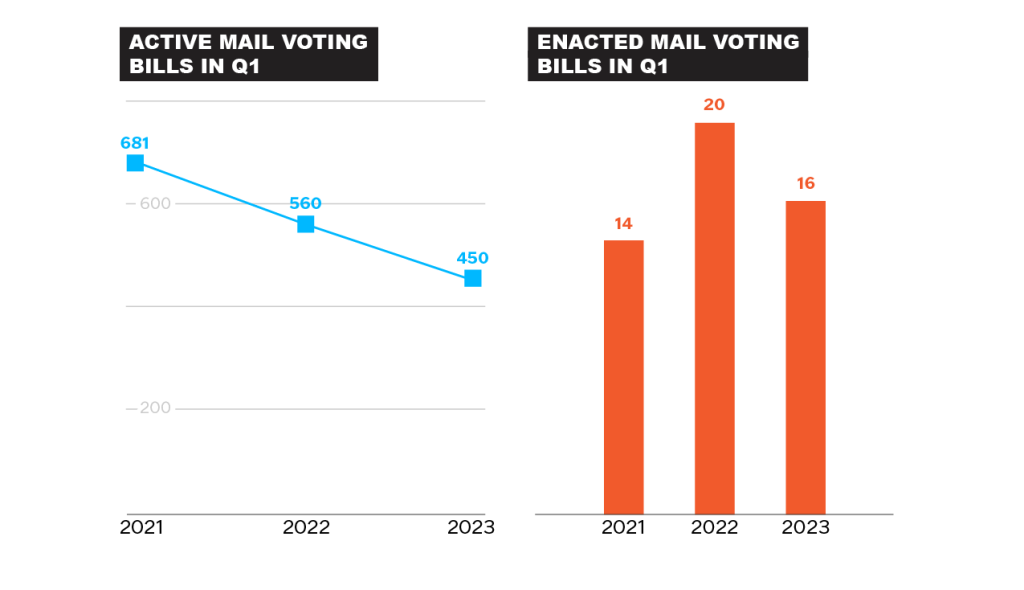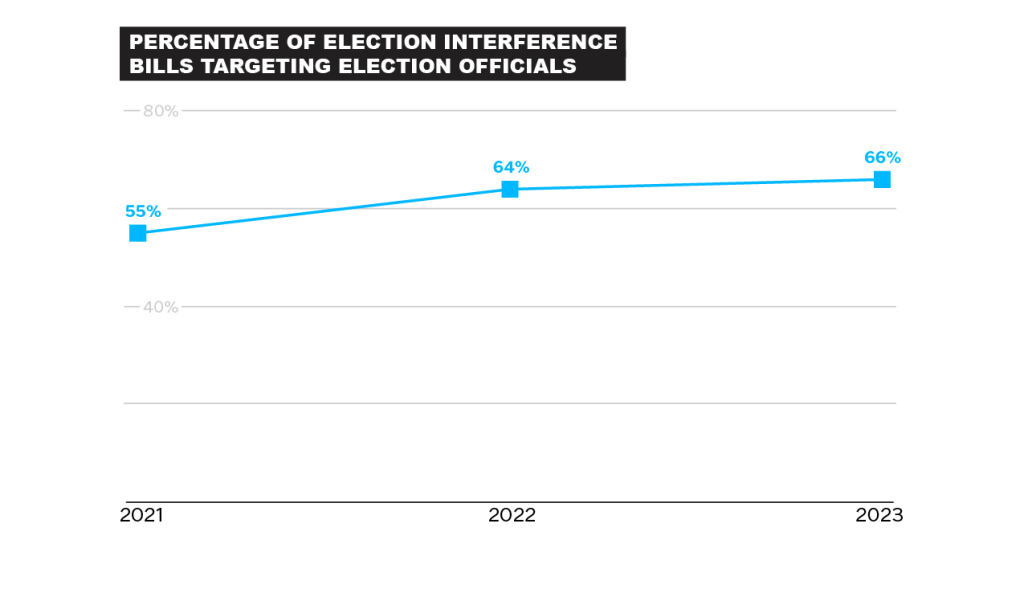States Continue Transforming the Elections Legislation Landscape in 2023
In recent years, election policy has increasingly become a priority for lawmakers across many states. Nearly 4,000 pieces of election legislation were considered in 46 states and DC whose legislatures were in session in the first quarters of 2021, 2022, and 2023.
While headlines have prioritized coverage of bills that would restrict voting rights, our research through the State Voting Rights Tracker found that more than half of all elections-related bills introduced during these periods would expand voting access and support nonpartisan election administration, although restrictive voting laws are being enacted faster in 2023 than in previous years.
The Voting Rights Lab’s newest report — “Another Change-Making Year” is a first-of-its-kind report that examines election-related legislation introduced in the first quarter in states over the post-2020 period, a transformative time for elections policy nationwide.
Our findings provide insight into where voting rights policy at the state level is headed in months and years to come.
The dataset used in this original analysis compares State Voting Rights Tracker records of 3,985 pieces of legislation active in the first quarter (January 1 to March 31) of 2021, 2022, and 2023 in 46 state legislatures and Washington, D.C.
Election Legislation Remains a Significant Focus for State Legislators in the Post-2020 Period and Today
While the number of election-related bills introduced has dipped slightly in the first quarter of this year (1,307) as compared to either 2022 (1,539) or 2021 (1,444), the number of newly enacted laws is actually higher this year (46) than it was at the same point in either 2022 (41) or 2021 (35).

After a Post-2020 Surge, Fewer Changes to Mail Voting
In the first quarter of the 2021 session, 44% of all bills tracked in the State Votings Rights Tracker contained provisions related to mail voting, compared to 39% in 2022 and 34% in 2023. 2023 is the first year that the number of enacted bills that restrict mail voting matches the number of enacted bills that improve mail voting in the first quarter.

Election Interference Legislation Remains a Threat, and Election Officials Are the Main Target
After emerging as a new and disturbing trend in 2021 and 2022, legislation that interferes with fair, nonpartisan election administration appears to be declining but still active in 2023 – and it is clear that state and local election officials are the main target of these bills. State and local election officials have been the target of two-thirds (66%) of all election interference legislation considered in the first quarter of 2023, up from 55% during the same time period in 2021.

We will continue monitoring developments and trends in state election legislation throughout the remainder of the year. As always, you can follow along in real-time with our twice-daily updated State Voting Rights Tracker, which tracks election legislation and current election law in all 50 states.